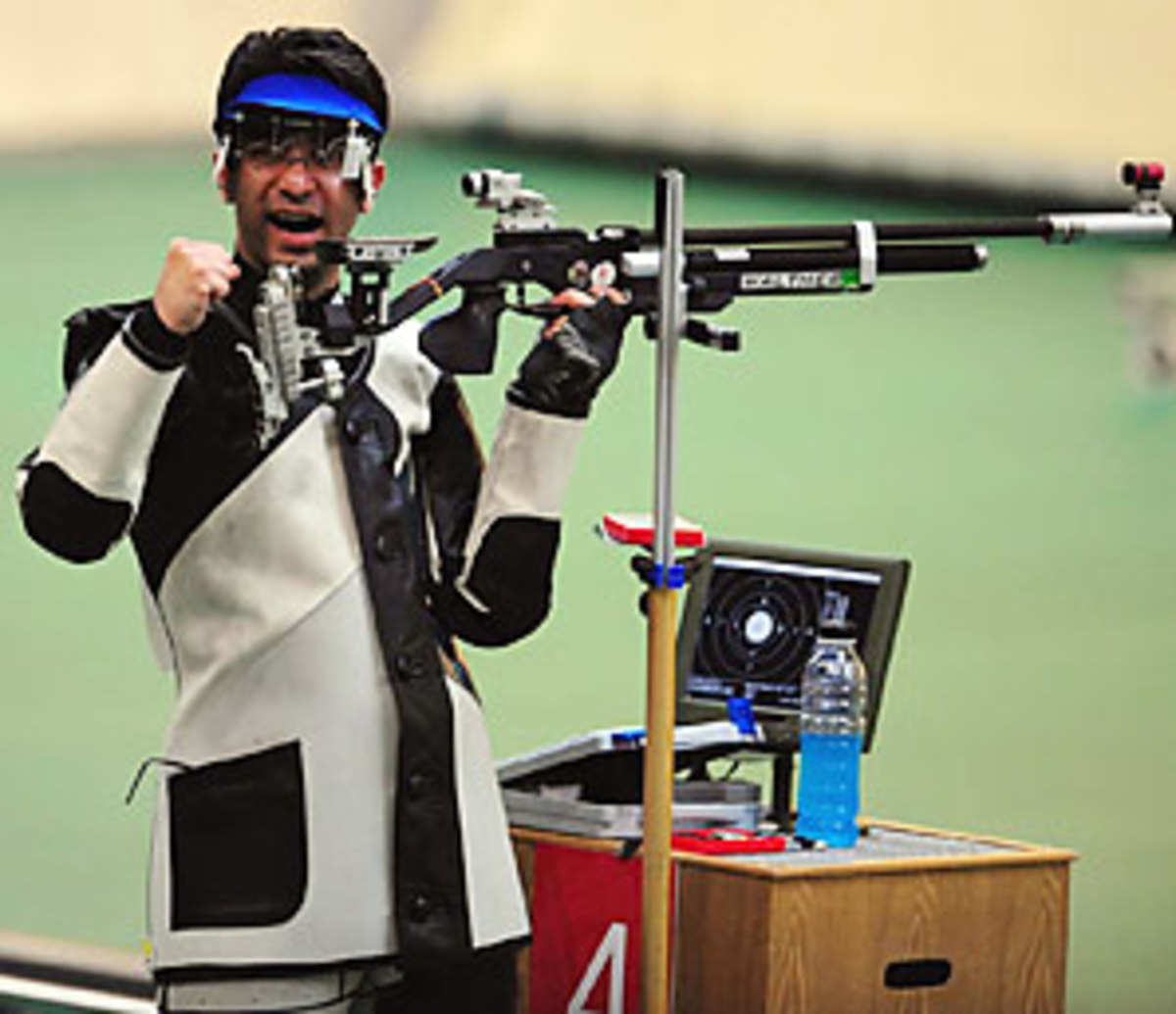My Sportsman: Abhinav Bindra


Sports Illustrated will announce its choice for Sportsman of the Year on Dec. 2. Here's one of the nominations for that honor by an SI writer. For more essays, click here.
Of all the athletes put forth in this series, I'm guessing that Abhinav Bindra's name is least likely to resonate with visitors to SI.com. But bear with me as I explain why the man who won a shooting gold medal at the Beijing Olympics is my Sportsman of the Year.
With his performance in the 10-meter air rifle, Bindra became India's first individual Olympic gold medalist ever. That makes him a canary in the coal mine of one of the most fascinating countries in the developing world. Much as Liu Xiang, heralded China's newfound prosperity and confidence with a hurdling gold at the Athens Games in 2004, Bindra is emblematic of further tectonic change afoot.
The details of his story make the case best. After he picked up a rifle a decade ago, Bindra's wealthy family sank millions of rupees into his career. They installed a private shooting range inside their home in Punjab. They hired a Swiss coach. They sent him to Germany and South Africa to train. In the eyes of some, all this has cheapened his achievement; his family, the argument goes, "bought" him Olympic glory. Perhaps. But to my mind these circumstances only underscore the symbolism of Bindra's achievement. A nation prosperous enough to give an athlete decisive advantages -- advantages that led him to claim the ultimate prize on world sport's greatest stage -- is by definition no longer a global backwater.
Today that country can count a billion citizens. Though 40 percent of them suffer from poverty or illiteracy, and in many cases both, this also means India boasts 400 million people whose circumstances have nowhere to go but up. Moreover, some 500 million Indians, Bindra among them, are 25 or younger -- which is to say they have many decades' worth of striving to do. Indeed, the stirrings of a middle class are already evident on the subcontinent. The Olympic champion earned a business degree from the University of Colorado, then returned to India, where he runs the computer-gaming company that's part of his family's portfolio of commercial interests. Where a generation ago Indian professionals would rarely pass up an opportunity to emigrate, the Bindra generation is more and more inclined to stay, further boosting an economy that, thanks to globalization and outsourcing, kindles to its role as "back office to the world."
In Beijing, Bindra bowed his head while an IOC muckity-muck from the tiny, hidebound and essentially irrelevant Alpine principality of Liechtenstein hung that gold medal around his neck. We should get used to Indians bowing, and not doing so in subservience.
